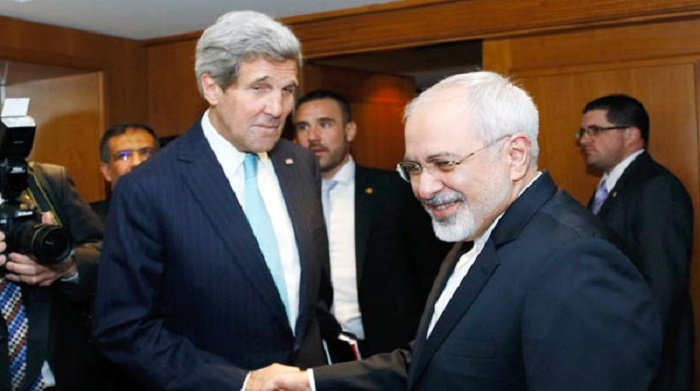Clarifying the Nuclear Timeline: Debunking the Myth of a March Deadline

There is a systematic effort in the United States today to convey the wrong impression that the deadline for the nuclear talks is only a month away in March, thus trying to put additional pressure on Iran. This is reflected in, among others, the Wall Street Journal (February 10, 2015) that refers to "the final extension" in March. Similarly, the US Secretary of State John Kerry has conveyed the impression that the U.S. might not agree to another extension beyond March if a "general principles" agreement, also called the "political agreement," is not reached by late March. US President Barack Obama has echoed the same sentiment in his press interview on February 9, 2015, by putting the ball in Iran's lap and claiming that the issues are "sufficiently narrowed, sufficiently clarified" to warrant a final decision by Tehran.
The problem with the American approach is that it ignores the prior U.S. consent to the extension of the interim agreement until July 1, 2015, in light of the joint statement by Iran's Foreign Minister and the European Union's representative, dated November 24, 2014, clearly referring to the extension of the "Joint Plan of Action" until June 30, 2015. This is the only deadline mentioned in that statement, which has the additional provision that the parties will try to reach the deadline sooner within the "next four months." Clearly, the latter was an expression of intent and not a set deadline, in other words, the one and only deadline that really matters is the July deadline. Until then, the U.S. and Europeans are obligated to refrain from imposing new sanctions on Iran.
As is well-known, the hawkish members of U.S. Congress have introduced a new sanctions bill that they plan to vote on after March 24, 2015, following the erroneous impression that there is a March deadline. Unfortunately, the Obama administration instead of trying to correct the lawmakers is, as stated above, fanning the fuel of such a clear misinterpretation, thus casting doubt on its sincerity and good-faith negotiation.
What has turned the issue of deadline an even more urgent one is the recent statement by Iran's Supreme Leader rejecting the need for a "two-stage" agreement. Ayatollah Khamenei has stated his preference for a "single agreement" that would cover both the "generalities and specifics together." Since the Geneva agreement already has provided a broad outline of the final agreement and envisions a single agreement, there is no need to redundancy and re-writing the nuclear script, which Iran rightly suspects of harboring ill intentions toward Iran's nuclear rights.
Henceforth, the ball is in fact in U.S.'s laps. Washington can either continue on its negative path of insisting on a "two-stage" agreement and ignore that the Leader has issued the final Iranian verdict on this matter and as far as Iran is concerned that is a moot point, or it can adjust its policy approach and act reasonably and intelligently by simply forgetting about the "March deadline" and focus its energy on reaching a "win-win" deal by July.
Assuming that the White House under internal and external pressure (by Israel) opts for the wrong decision and continues to insist on a "two-stage" agreement and the March deadline, then it can be safely assumed that the talks will collapse and the U.S. would be blamed in the international community for violating a deadline it had consented to earlier. Certainly, other powers involved in the nuclear talks, such as Russia and China, will not accommodate the U.S. on its latest shenanigan and it will backfire on the U.S.
In fact, if the U.S. had not unilaterally tried to spin the deadline toward March instead of July, reflected in a US Department of State statement issued after the final round in Vienna last November, it would not be boxing itself today in a make-believe approaching deadline a few weeks away, when the evidence clearly points to a longer deadline a few months away. This deliberate confusion regarding the deadline does not serve any one's interest however and a prudent U.S. approach would be to come to terms with Iran's preference for a single agreement, in light of the statement by Foreign Minister Zarif that this is the moment to reach a deal that might not be repeated in the future. Seizing the opportunity for a mutually-satisfactory deal requires without doubt the political will on both sides, as well as a "good-faith" approach that stays clear of deliberate ambiguities and even distortions of such key issues as the deadline for the extended interim agreement.

